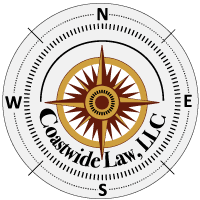The following article appeared in Gulf Coast Woman Magazine
I talk with a lot of families, especially after there has been a traumatic event. Often, someone has been diagnosed with dementia or a spouse has passed away. Sometimes an elderly person has been defrauded of their assets or home. Quite often, although not always, it is a woman seeking my help to get the return of her assets.
What has amazed me during these conversations is that so many women feel that they must let others “help” them with their assets because they do not know the details of their financial life or they feel unable to handle their finances on their own. They may know all of the birthdays for everyone in the family, but often they are not able to tell me details about their assets — the information that they need to know to make crucial decisions or to protect their assets. Sometimes, they are even unable to state where they have their financial accounts, how much they have in those accounts, or how those accounts are titled. What seems commonplace is that women, especially as they age, often allow others to “help them handle” their financial assets by “putting another name” on the accounts so that someone can help them pay bills.
In Mississippi, if you list another person’s name on your account as a person who can sign (or make transfers) on that account, you have no recourse if that person takes every cent from your account and leaves town. While you may trust that person whom you put on your financial account, just remember that you need to protect yourself the most from those who are the closest to you and that you may suspect the least. Ninety percent of perpetrators of fraud on elders are known to their victims, with roughly 6 out of 10 cases of elder financial abuse being committed by relatives — usually, the victim’s children — and about 3 out of 10 instances being traced to friends, neighbors, or home care aides. (“Fraud in the Family,” AARP Magazine, February-March 2018)
Therefore, I want to recommend to everyone, especially women, to do the following:
1. Know what assets you own, where they are located, and how the property or accounts are titled;
2. Check the statements of financial accounts on a regular basis to watch for any unusual activity. This includes any unauthorized activity taken by your children or family;
3. If you live alone, do not isolate yourself. Keep in touch with a wide array of friends and family so that they know about your circumstances. Quite often, if someone is attempting to commit fraud, they will isolate you from others;
4. Do not be afraid to engage a professional to help you — whether it is an attorney, certified financial planner or accountant — it is better to have another set of eyes watching out for you;
5. Do not be afraid of having a trust or some other mechanism to help you, rather than just assuming that you have no choice but to list another person on your accounts.
Information is key to protecting your financial assets. Do not be afraid to ask questions and learn more about your options.
Kathy Brown van Zutphen is an attorney licensed to practice law in Alabama and Mississippi. She focuses on the “elder law” areas of trusts, estates, and conservatorships. Additionally, she litigates lawsuits and represents small business owners as part of her legal practice. You can also reach her at her office: (228) 357-5227.


